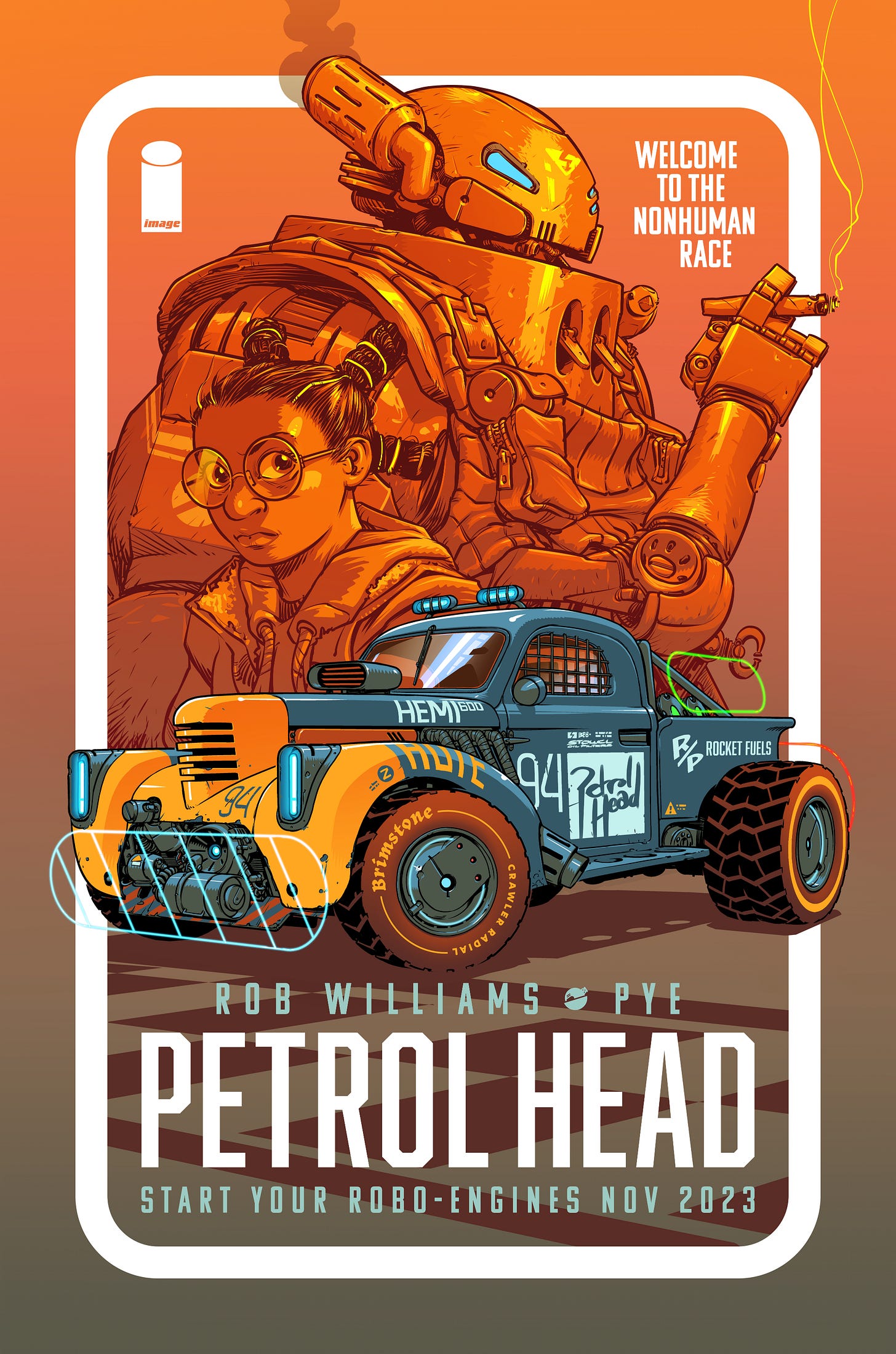Full Throttle Fiction: Q&A with Comic Writer Rob Williams
The writer of SUICIDE SQUAD, JUDGE DREDD and DOCTOR WHO talks story-building and script-mechanics, as well as managing PETROL HEAD, his new creator-owned sci-fi project landing in November from Image

Mr Williams! You’re a veteran comic-book writer and you’re Welsh. What else do we need to know?
‘Veteran’ makes me sound decrepit and Welsh makes me sound… well, Welsh. I can’t deny the second one at least. I’m a writer, mainly of comics but also of TV and film screenplays these days. I’ve worked for 2000AD, DC Comics, Marvel, Hellboy, Kin…

